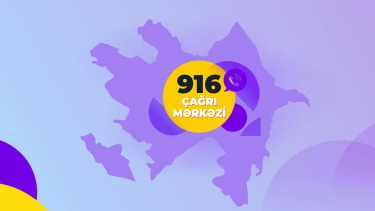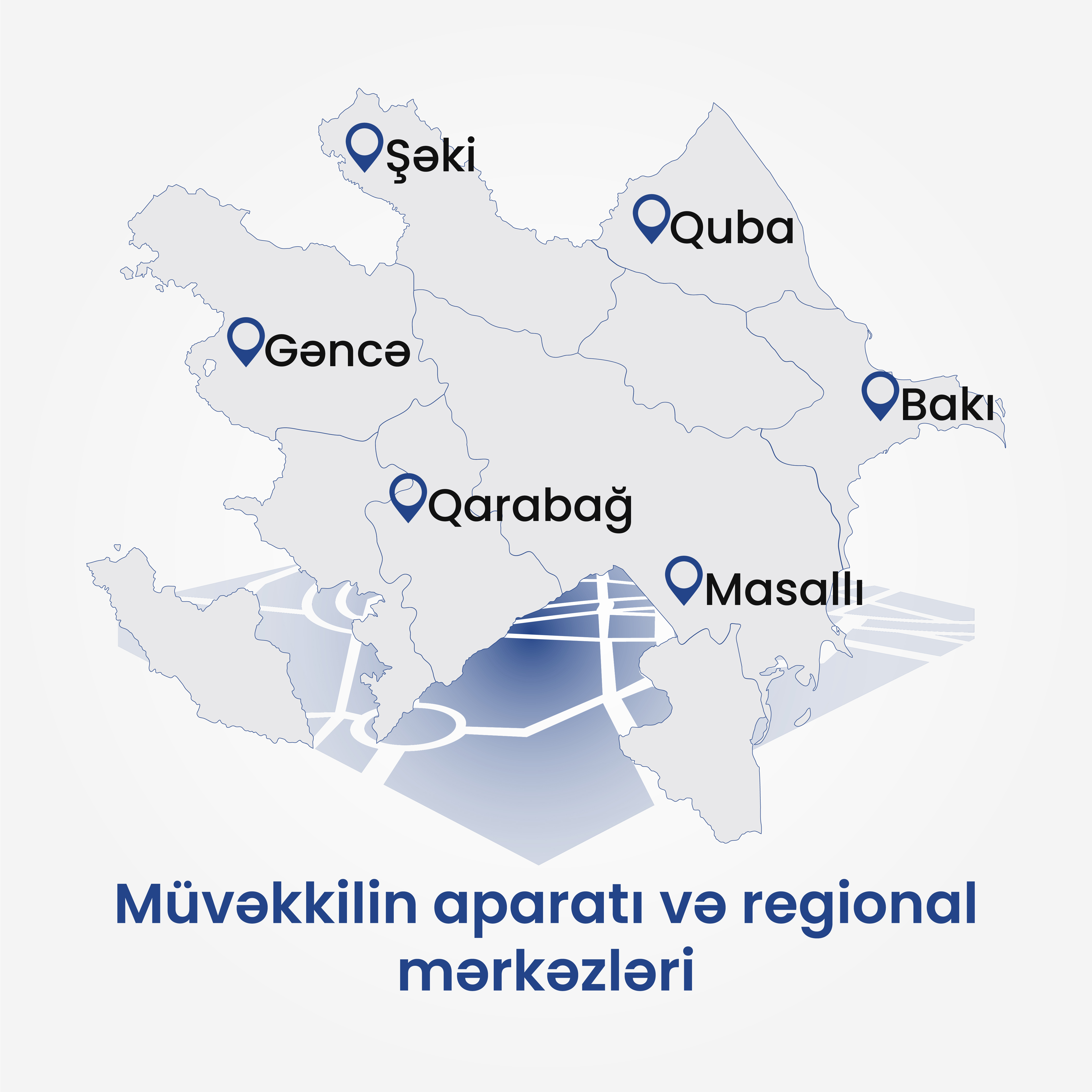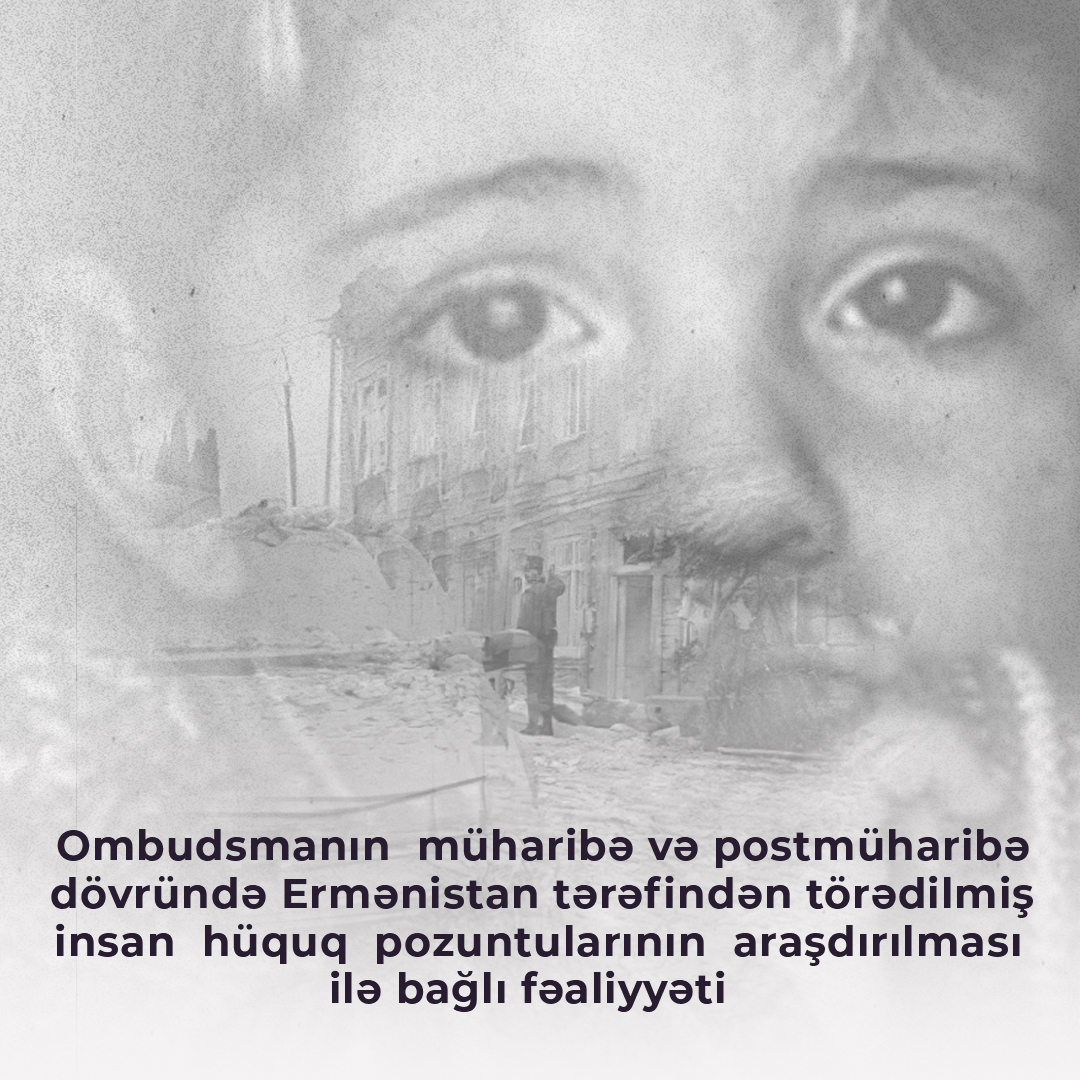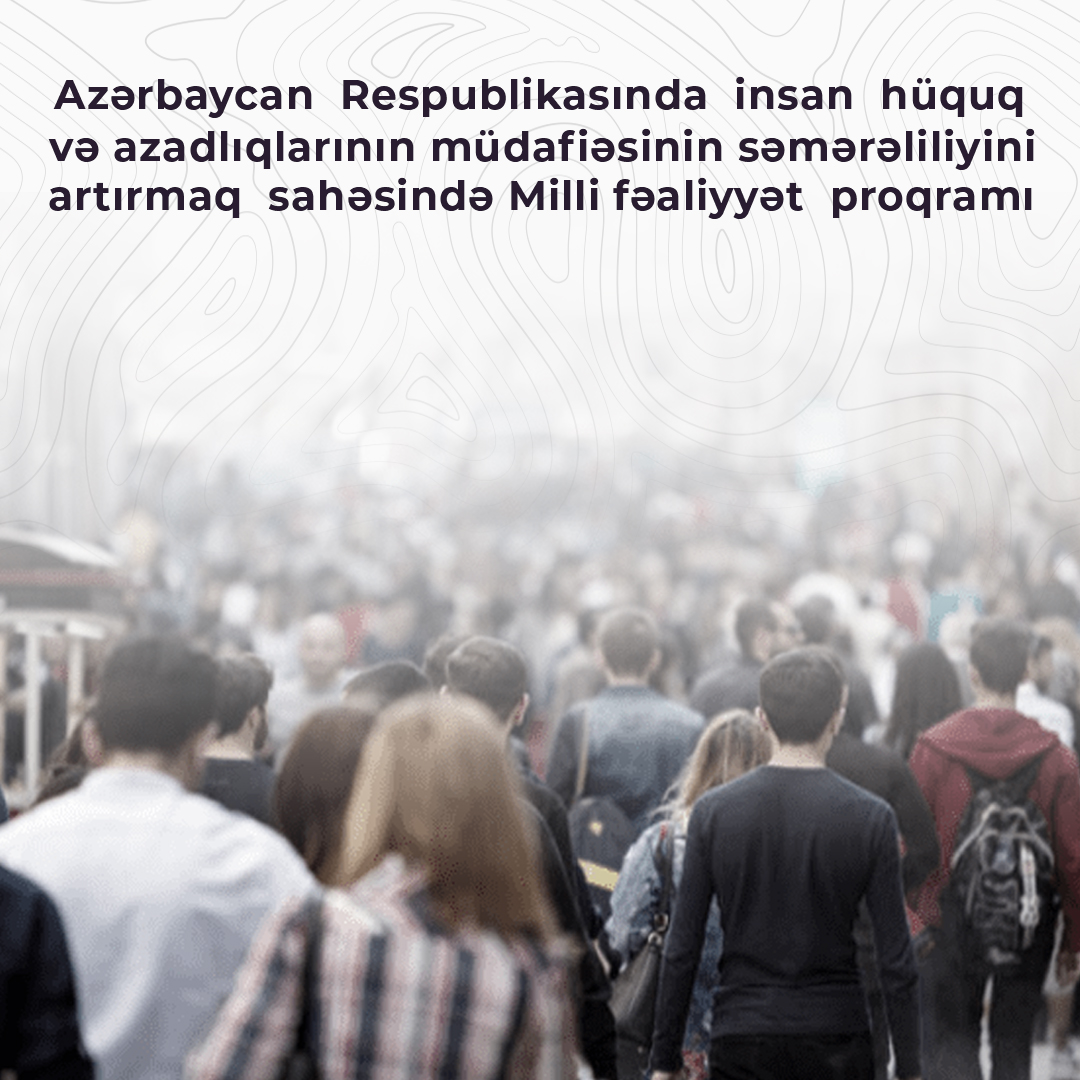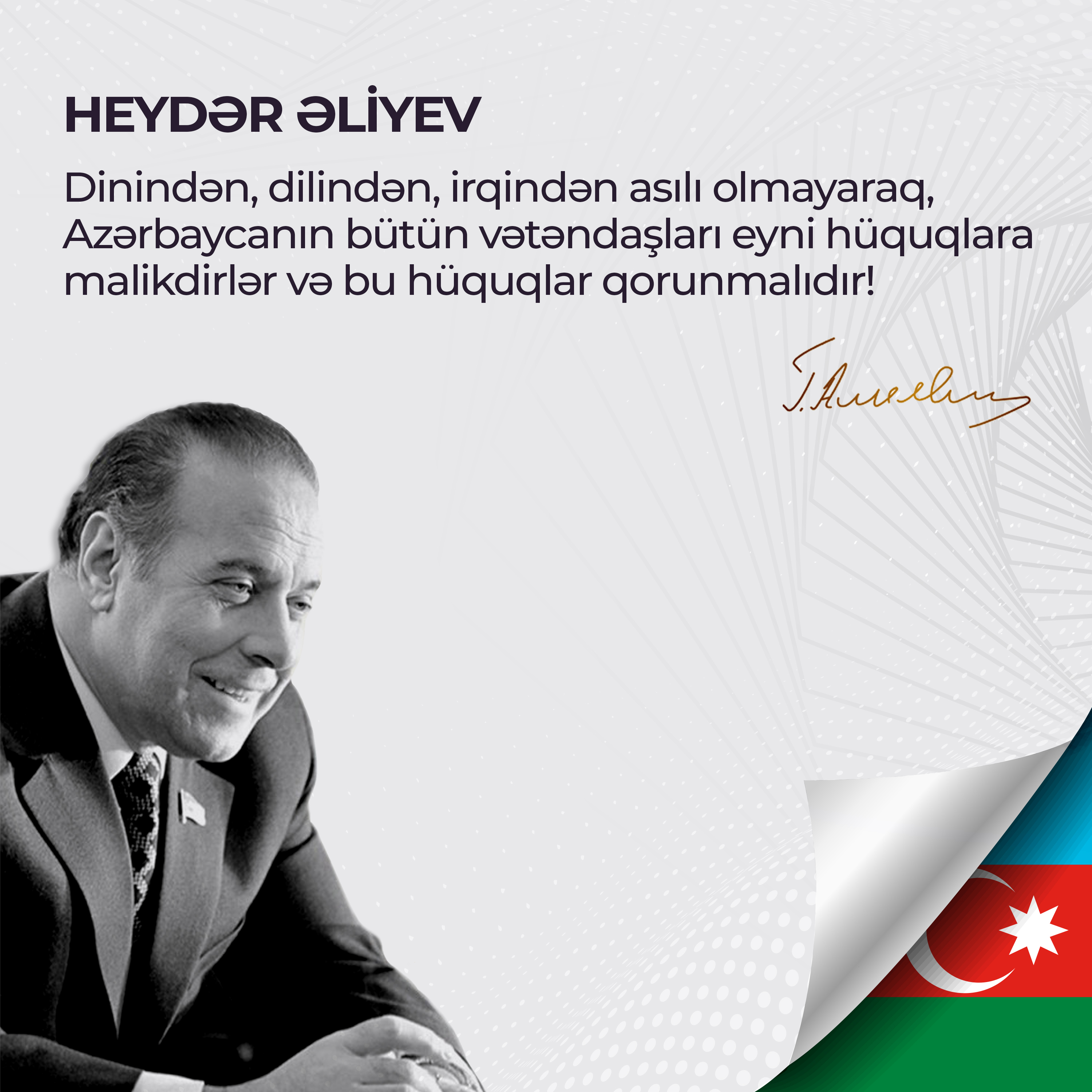
- Ana səhifə
- Müvəkkil
-
Müvəkkilin fəaliyyəti
- Psixi sağlamlıq və insan hüquqları
-
Əhali qruplarının hüquqlarının müdafiəsi
- Uşaq hüquqlarının müdafiəsi
- Qadın hüquqlarının müdafiəsi və gender bərabərliyinin təmin edilməsi
- Hərbi qulluqçuların hüquqlarının müdafiəsi
- Həbs yerlərində saxlanılan şəxslərin və məhkumların hüquqlarının müdafiəsi
- Qaçqınların, məcburi köçkünlərin və miqrantların hüquqlarının müdafiəsi
- Ahılların hüquqlarının müdafiəsi
- Əlilliyi olan şəxslərin hüquqlarının müdafiəsi
- Şəhid ailələri və müharibə veteranlarının hüquqlarının müdafiəsi
- İnformasiya əldə etmək hüququnun təmin edilməsi
- Müstəqil Monitorinq Mexanizmi
- Hüquqi maarifləndirmə
-
Beynəlxalq əməkdaşlıq
- Beynəlxalq qurumlarla əməkdaşlıq
- Beynəlxalq qeyri-hökümət təşkilatları ilə əməkdaşlıq
- Təlim səfərləri
- Layihələr
- Beynəlxalq qurumlara ünvanlanan bəyanatlar
- “Ad hoc” hesabatlar
- BMT-nin müqavilə qurumlarına təqdim olunan paralel və alternativ hesabatlar
- BMT-nin İnsan Hüquqları Şurasına təqdim olunan yazılı və şifahi bəyanatlar
- Əməkdaşlığa dair memorandumlar
- Ombudsmanların Bakı Bəyannamələri
- Bakı Beynəlxalq Forumu
- Elmi analitik iş
- İctimaiyyətlə və vətəndaş cəmiyyəti institutları ilə əməkdaşlıq
- Biznes və insan hüquqları
- İşgəncə əleyhinə milli preventiv mexanizim
- İnsan hüquqlarının müdafiəsi
- Sənədlər
- Media
- Canlı yayım
- Əlaqə
- Ana səhifə
- Müvəkkil
-
Müvəkkilin fəaliyyəti
- Psixi sağlamlıq və insan hüquqları
-
Əhali qruplarının hüquqlarının müdafiəsi
- Uşaq hüquqlarının müdafiəsi
- Qadın hüquqlarının müdafiəsi və gender bərabərliyinin təmin edilməsi
- Hərbi qulluqçuların hüquqlarının müdafiəsi
- Həbs yerlərində saxlanılan şəxslərin və məhkumların hüquqlarının müdafiəsi
- Qaçqınların, məcburi köçkünlərin və miqrantların hüquqlarının müdafiəsi
- Ahılların hüquqlarının müdafiəsi
- Əlilliyi olan şəxslərin hüquqlarının müdafiəsi
- Şəhid ailələri və müharibə veteranlarının hüquqlarının müdafiəsi
- İnformasiya əldə etmək hüququnun təmin edilməsi
- Müstəqil Monitorinq Mexanizmi
- Hüquqi maarifləndirmə
-
Beynəlxalq əməkdaşlıq
- Beynəlxalq qurumlarla əməkdaşlıq
- Beynəlxalq qeyri-hökümət təşkilatları ilə əməkdaşlıq
- Təlim səfərləri
- Layihələr
- Beynəlxalq qurumlara ünvanlanan bəyanatlar
- “Ad hoc” hesabatlar
- BMT-nin müqavilə qurumlarına təqdim olunan paralel və alternativ hesabatlar
- BMT-nin İnsan Hüquqları Şurasına təqdim olunan yazılı və şifahi bəyanatlar
- Əməkdaşlığa dair memorandumlar
- Ombudsmanların Bakı Bəyannamələri
- Bakı Beynəlxalq Forumu
- Elmi analitik iş
- İctimaiyyətlə və vətəndaş cəmiyyəti institutları ilə əməkdaşlıq
- Biznes və insan hüquqları
- İşgəncə əleyhinə milli preventiv mexanizim
- İnsan hüquqlarının müdafiəsi
- Sənədlər
- Media
- Canlı yayım
- Əlaqə
Çağrı mərkəzi
916
.
30 years have passed since the 20 January 1990 tragedy occurred in the capital city of Azerbaijan and other regions of the country and resulted in the murder, injuries and disappearances of hundreds of compatriots.
Massacre of 20 January has been committed in order to suppress the people’s voice against support of the USSR administration to the Armenian separatism emerged since 1987 in the Nagorno-Karabakh Autonomous Republic - an integral part of Azerbaijan, biased position against our country, the deportation of Azerbaijanis from their historical-ethnic lands in Armenia, ethnic cleansing and policy of genocide, as well as to prevent the possibility of independence of Azerbaijan.
On the night from 19 to 20 January, 1990, Soviet army tanks and other heavy military equipment have been deployed in Baku, Sumgait and other cities and regions of the country without warning; the peaceful population was shot dead; 150 unarmed civilians, including children, women and the aged persons have been mercilessly killed irrespective of their nationality, age and gender; even ambulances and medical staff, carrying the injured persons have been shot at; as well as the prohibited weapons and supplies have been used. 774 peaceful and innocent persons have been wounded; hundreds of people went missing and 841 have been unlawfully arrested. The Republic TV power supply has been exploded as a result of the provocation by the USSR Committee for State Security (KGB) to prevent spreading the news to the public.
At that period, in Moscow, on behalf of the Azerbaijani people, the National Leader Heydar Aliyev made a harsh statement related to these bloody events and demanded to politically assess the massacre committed against our people on 20th January and to punish the perpetrators; and later during his presidency, at his own recommendation, this bloody event has been given political and legal assessment at the special Session of the Parliament of Azerbaijan.
There are sufficient legal evidences to bring the perpetrators of the tragedy of 20 January to justice. This event primarily is a fact of breach of international legal documents and treaties, including the UN Universal Declaration of Human Rights, International Covenant on Civil and Political Rights. Simultaneously, under Article 7 of the Rome Statute of the International Criminal Court, the tragedy of 20th January may be interpreted as a crime against humanity as during this event persons have been murdered; forcibly disappeared; persecuted on the political, national, ethnic, cultural or gender grounds; subjected to torture and other inhumane acts intentionally causing great suffering or serious injury to body or to mental or physical health.
Pursuant to the relevant Presidential Order, the nationals of the Republic of Azerbaijan of various origin murdered during this tragedy have been symbolically named “Martyr of 20th January”. Also, in accordance with the Decree on “The increasing of the state care to the persons who became disabled during 20th January events”, different measures are taken. These persons are provided with allowances, whereas families of martyrs are granted with Presidential allowances.
Like every year, “The Action Plan on events on the occasion of the 30th anniversary of tragedy of 20 January” has been approved by the related Order and is being implemented in a view to draw the attention of the international community to these bloody events this year, as well.
There are quite sufficient grounds that events occurred on the 20th January can be interpreted as a crime against humanity, which is one of the gravest types of international crimes according to the principles of international law, as well as to bear the initiators and perpetrators of this massacre, at that time the USSR administration, in particular, criminally responsible. The Republic of Azerbaijan presents the realities about the tragedy of 20th January and emphasizes the importance of punishment of those who committed this massacre to the attention of the international community.
As well as, the international community is drawn to the consequences of the aggression of Armenia against Azerbaijan and the violation of the rights of over one million compatriots who became refugees and internally displaced persons (IDPs). The position of Azerbaijan is that the Armenia-Azerbaijan Nagorno-Karabakh conflict shall be fairly settled in accordance with the principles of international law, and within the territorial integrity of our State, the occupied Azerbaijani lands shall be unconditionally liberated, and refugees and IDPs shall be returned to their homes. The Non-Aligned Movement, Organization of Islamic Cooperation (OIC), Organization for Security and Co-operation in Europe (OSCE), European Parliament, Parliamentary Assembly of the Council of Europe (PACE) and other organizations have adopted decisions and resolutions supporting just position of Azerbaijan concerning the resolution of the Armenia-Azerbaijan Nagorno-Karabakh conflict. The territorial integrity, sovereignty and inviolability of state borders of Azerbaijan were supported in the “Cooperation Priorities” signed between the European Union and Azerbaijan.
We urge international institutions and in general, the international community, as a whole, to give legal assessment to this criminal act that is associated with severe violations of human rights and is a breach of international legal norms.
Sabina Aliyeva
The Commissioner for Human Rights
(Ombudsman) of the Republic of Azerbaijan
Baku, 16 January, 2020
This Statement is addressed to the UN Secretary-General, UN Security Council, UN Office of High Commissioner for Human Rights, UN Office of High Commissioner for Refugees, UN Human Rights Council, the United Nations Children’s Fund, the United Nations Educational, Scientific and Cultural Organization, European Union, European Council, Organization for Security and Co-operation in Europe, International and European Ombudsman Institutions, Asian Ombudsman Association, Organization of Islamic Cooperation and the Ombudsman Association of its member states, Independent Permanent Human Rights Commission of the Organization of Islamic Cooperation, European Network of Ombudspersons for Children, International Peace Bureau, foreign ombudsmen and national human rights institutions, embassies of the Republic of Azerbaijan and the foreign embassies in Azerbaijan, as well as to the Azerbaijani Diasporas.
- İşgəncə əleyhinə milli preventiv mexanizm
- Əhali qruplarının hüquqlarının müdafiəsi
- Qaçqınların, məcburi köçkünlərin və miqrantların hüquqlarının müdafiəsi
- Həbs yerlərində saxlanılan şəxslərin və məhkumların hüquqlarının müdafiəsi
- Hərbi qulluqçuların hüquqlarının müdafiəsi
- Qadın hüquqlarının müdafiəsi və gender bərabərliyinin təmin edilməsi
- Uşaq hüquqlarının müdafiəsi
- Ümumi
- Hüquqi maarifləndirmə
- Ahılların hüquqlarının müdafiəsi
- Əlilliyi olan şəxslərin hüquqlarının müdafiəsi
- İctimaiyyətlə və vətəndaş cəmiyyəti təsisatları ilə əməkdaşlıq
- İşgəncə əleyhinə milli preventiv mexanizm
- Beynəlxalq əməkdaşlıq
- Qeyri-Hökumət Təşkilatları
- İctimai dinləmələr
- Kütləvi informasiya vasitələri ilə əməkdaşlıq
- Biznes və İnsan Hüquqları
- Şəhid ailələri və müharibə veteranlarının hüquqlarının müdafiəsi
- Miqrantların hüquqlarının müdafiəsi
- Ayrı-seçkiliyin qarşısının alınması və bərabərliyinin təmini
- İnformasiya əldə etmək hüququ
- Psixi sağlamlıq
- Ombudsman Qətərdə “Süni intellekt və insan hüquqları: imkanlar, risklər və daha yaxşı gələcəyə baxış” mövzusunda konfransda iştirak edib.
-

- Ombudsman Ermənistandan deportasiya olunmuş şəxslərin hüquqlarının müdafiəsi ilə bağlı BMT-nin Qaçqınlar üzrə Ali Komissarına məktub ünvanlayıb.
-

- Ombudsman Aparatının nümayəndəsi Energetika Nazirliyi tərəfindən keçirilən tədbirdə iştirak edib.
-

- Əfv Sərəncamının icrası prosesində iştirak edilib.
-

- Ombudsmanın regional mərkəzləri tərəfindən silsilə hüquqi maarifləndirici tədbirlər təşkil edilib.
-

- Ombudsmanın fəaliyyəti çərçivəsində bərabərlik hüququnun təmininə dair sosial videoçarx hazırlanıb.
-

